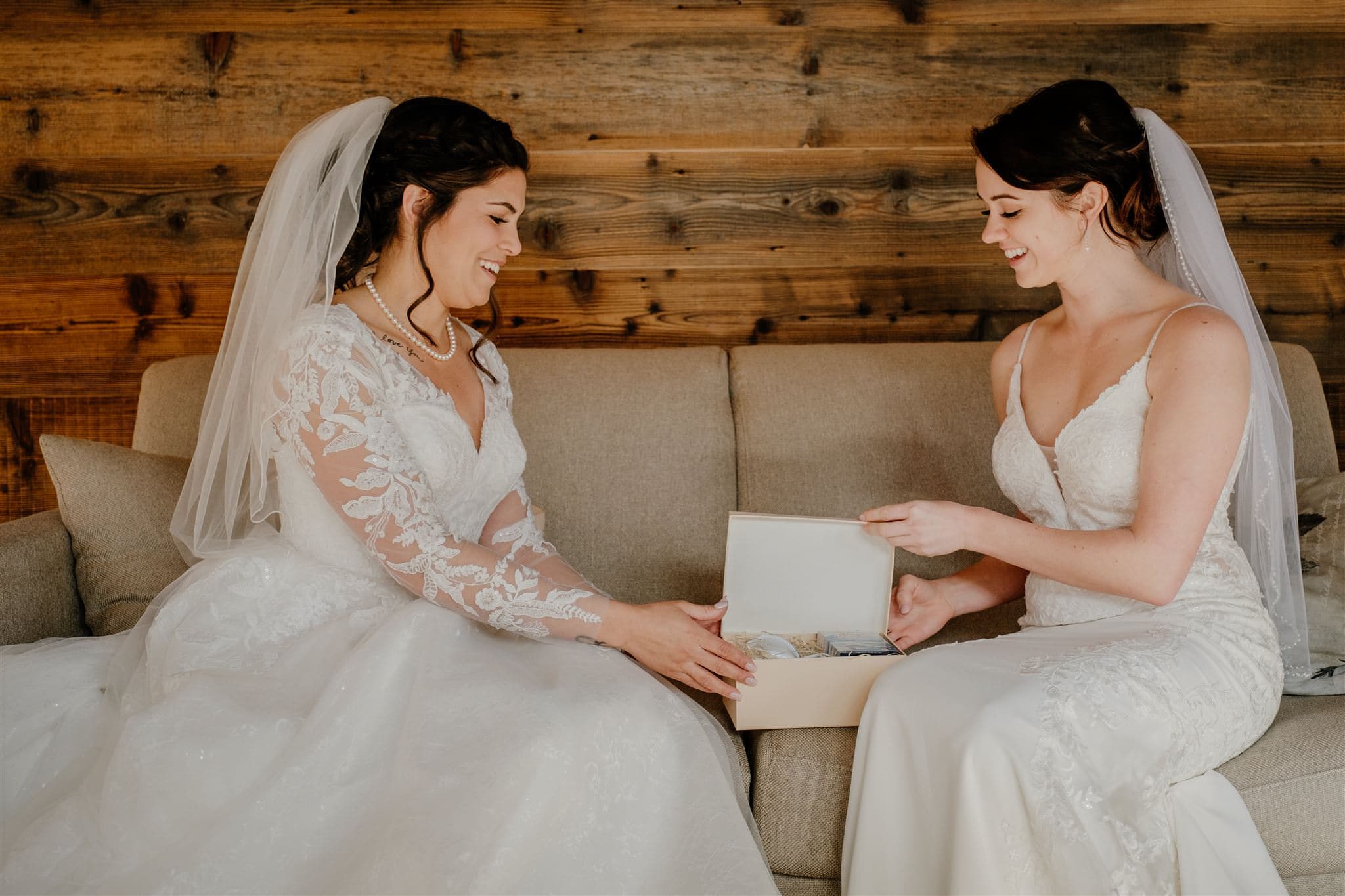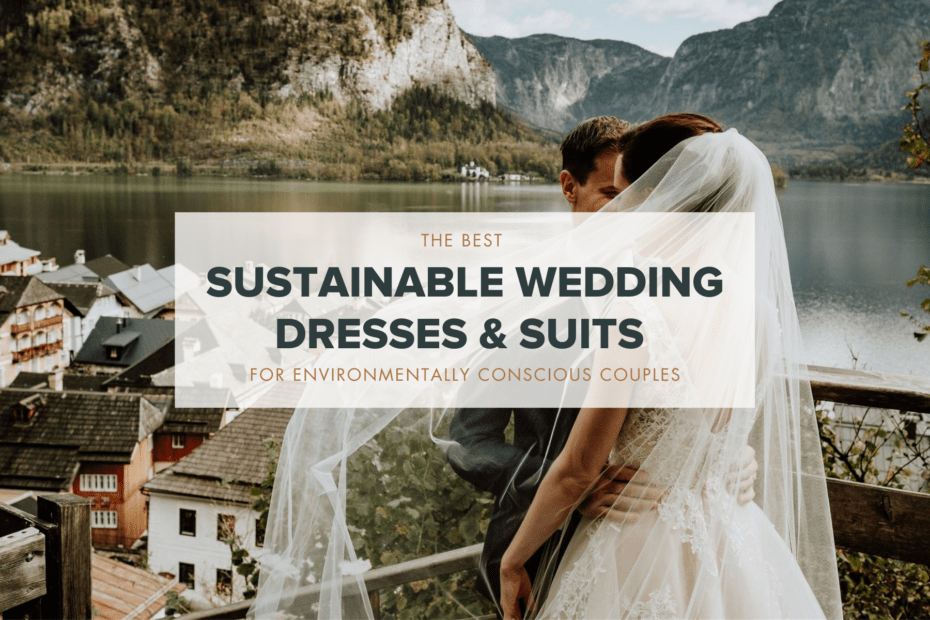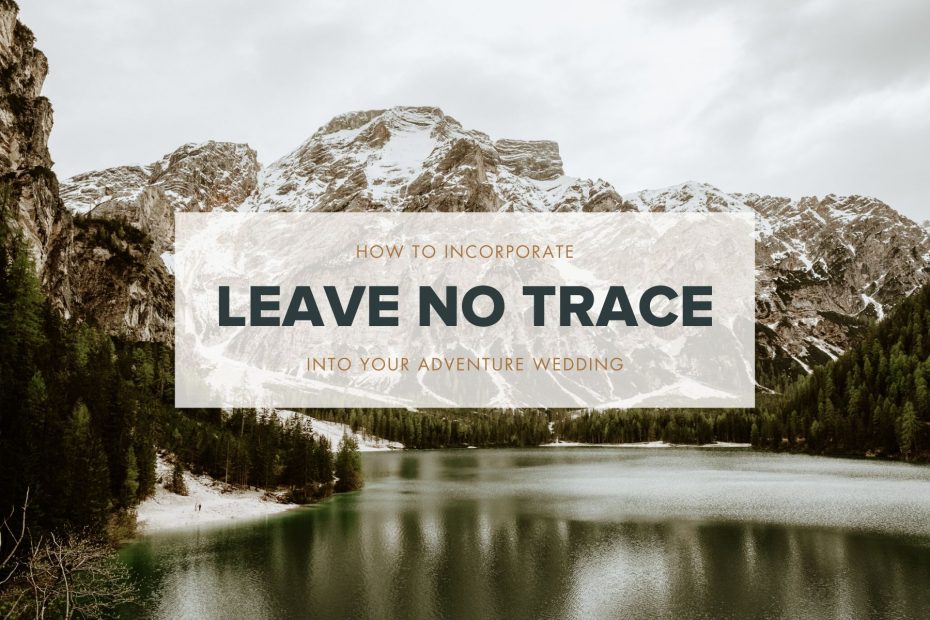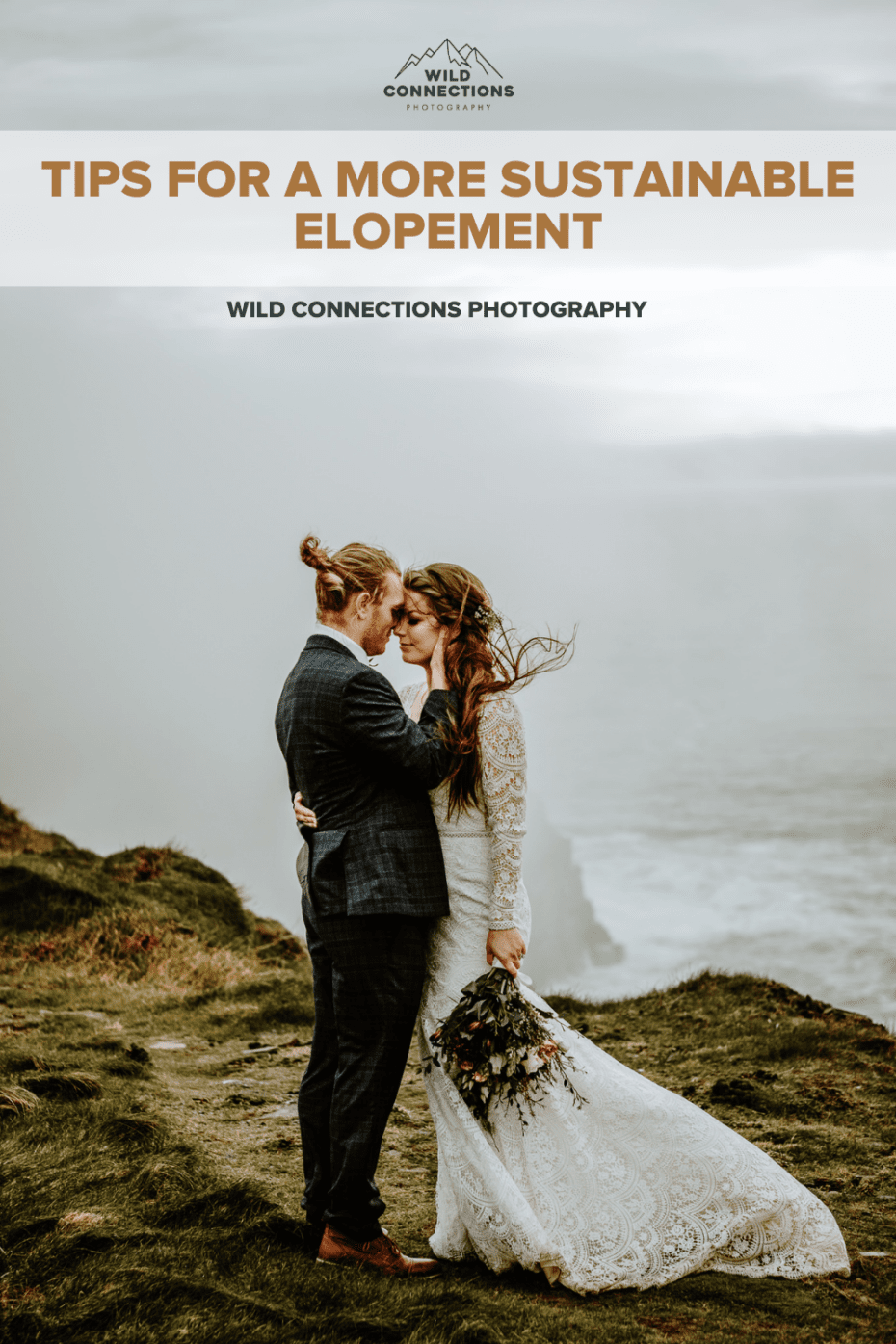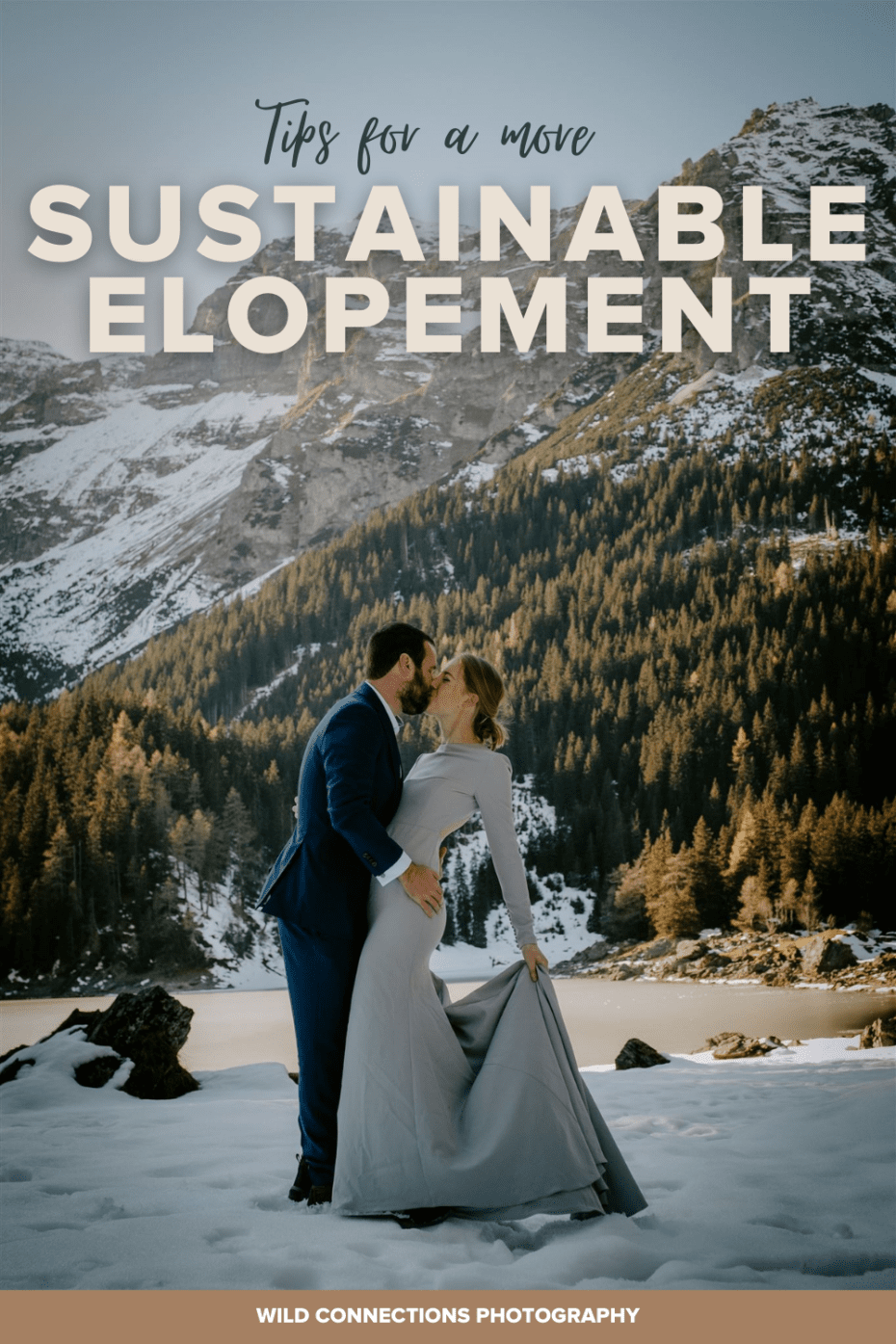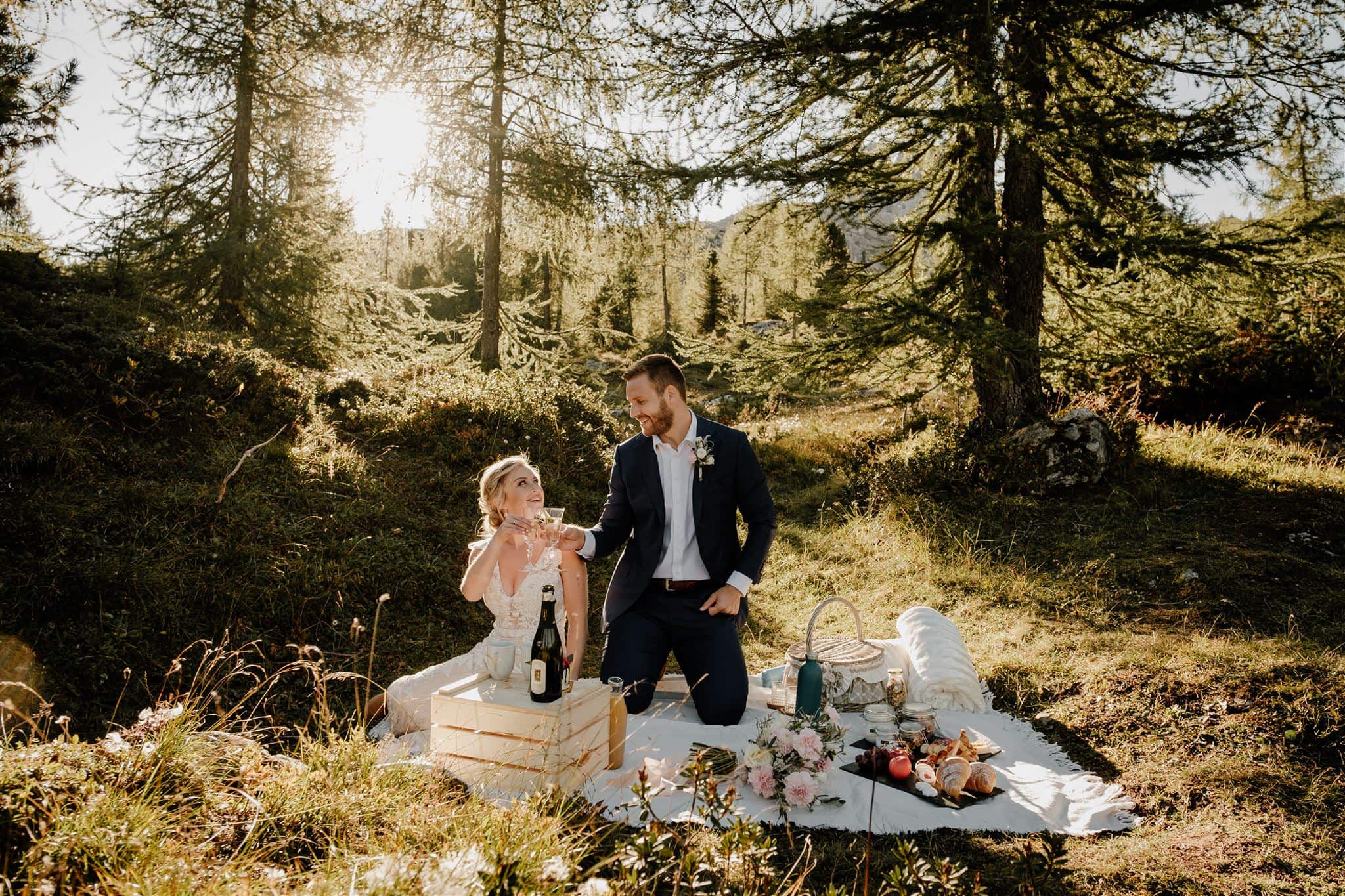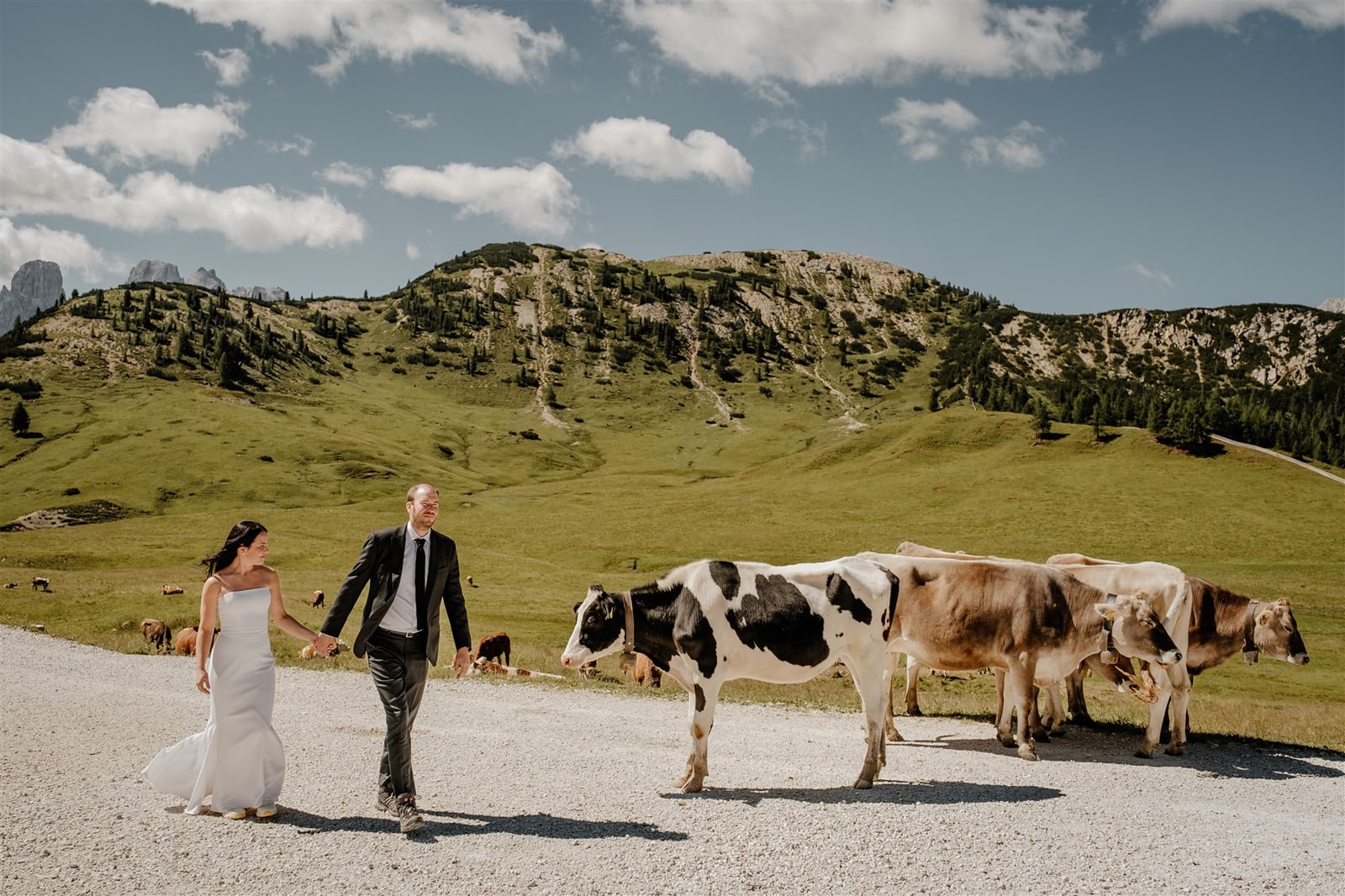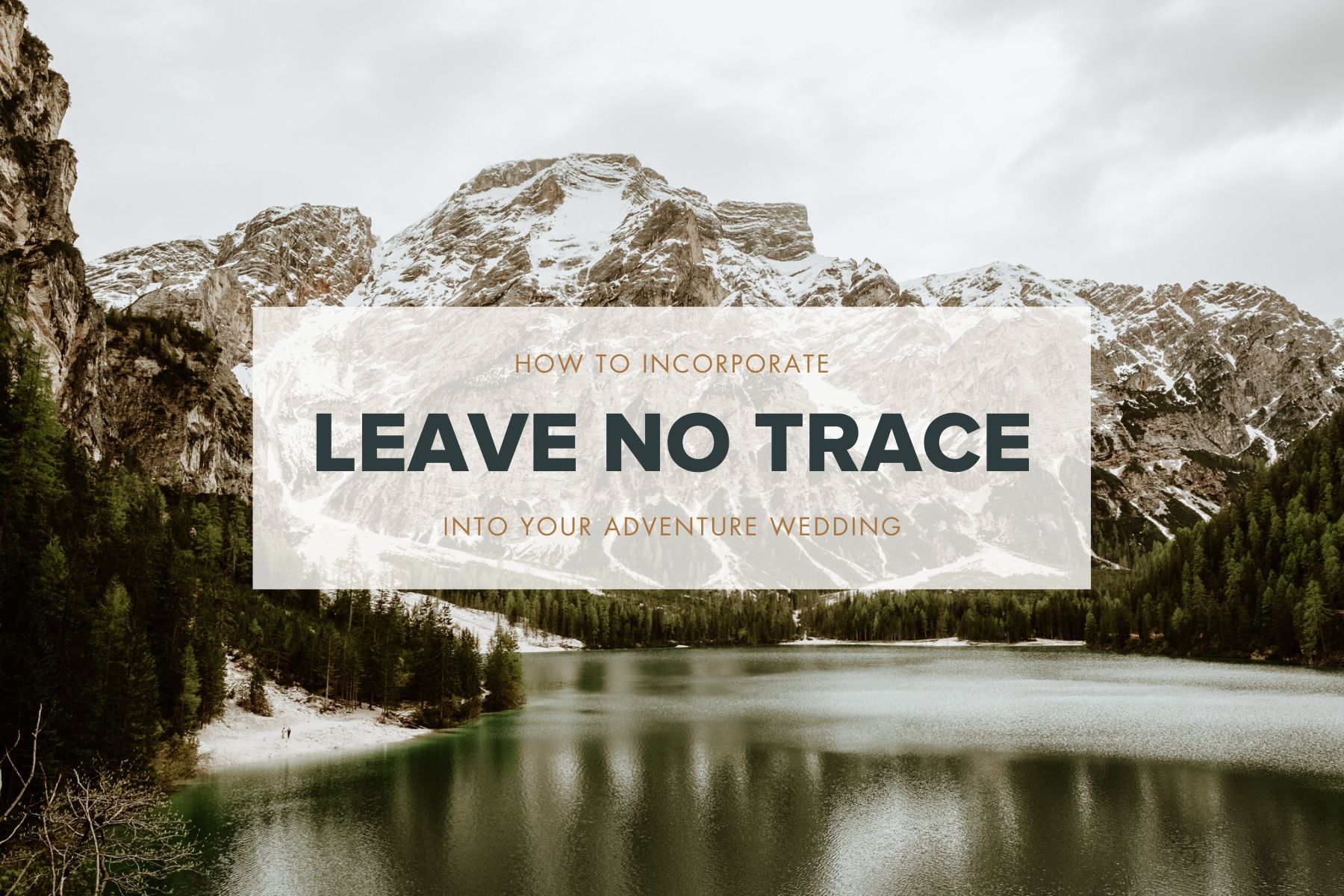Tips for a More Sustainable Elopement
Disclaimer - Some posts on this website contain affiliate links. I may earn a small commission at no extra cost to you if you make a purchase using my links, which I'll almost certainly use to buy more skis and climbing gear.
You’re not alone if you are thinking about ways to plan a more sustainable elopement. In the last few years we’ve all become more aware of the importance of living a sustainable lifestyle. Whether that’s reducing food waste or going plant based, walking to work or limiting the number of flights you take. So there’s no surprise that there is an increase in couples looking for more sustainable alternatives for their wedding day.
There’s a misconception that elopements are more impactful than traditional wedding days – when this isn’t necessarily true. With traditional weddings many people will travel from a range of locations, there are decorations, food and venue to all take into consideration. When you reduce the number of guests, or elope just the two of you, you are already considerably reducing your carbon footprint by reducing all of these things.
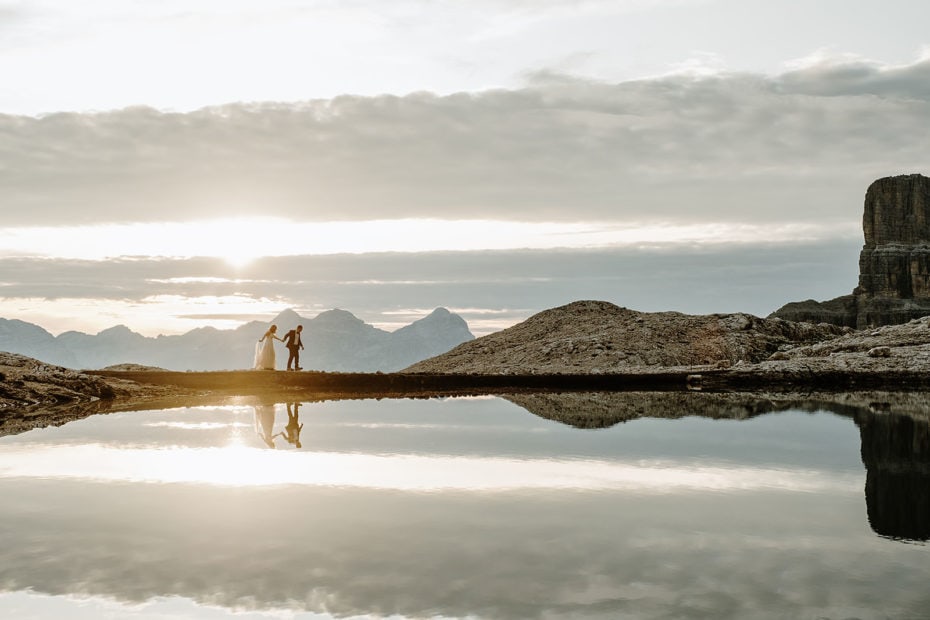
By saying yes to an elopement wedding you are saying yes to doing things differently. To rewriting the rule book. You can pick and choose the wedding traditions that work for you, and create new ones that are uniquely yours. Which means you can incorporate sustainability into your wedding day without worrying about what this might mean for your guests.
What does a sustainable elopement mean?
The UN has defined sustainability as “meeting the needs of the present without compromising the ability of future generations to meet their own needs”. This means that it is about making sure that our current generation can thrive, whilst also protecting the planet for generations to come.
Which can mean different things for different people. For some people it might be about reducing the amount of meat they eat. For others it might be about shopping locally and supporting local business whilst also reducing the number of airmiles linked to the things they are purchasing. In all these decisions we are making choices and compromises about the needs we have, and how this might impact people in the future.
The same is true of elopements. We could all decide tomorrow to never get married again and cancel all weddings – but that wouldn’t meet the needs of people today. We could decide to just carry on with huge destination weddings, as they are a once in a lifetime experience. But if you multiply that by all the people all over the world the impact can start to add up. Instead sustainable elopements are about finding a balance between the two. It’s about being mindful of how impactful the options that we have are, and using that information to help shape our decisions.
Elopements are more sustainable when we take into consideration the impact that our actions will have on people and the planet, and when we actively take steps to reduce that impact. This doesn’t mean we have to do it perfectly, but every step we take, no matter how small, can add up to a big difference.
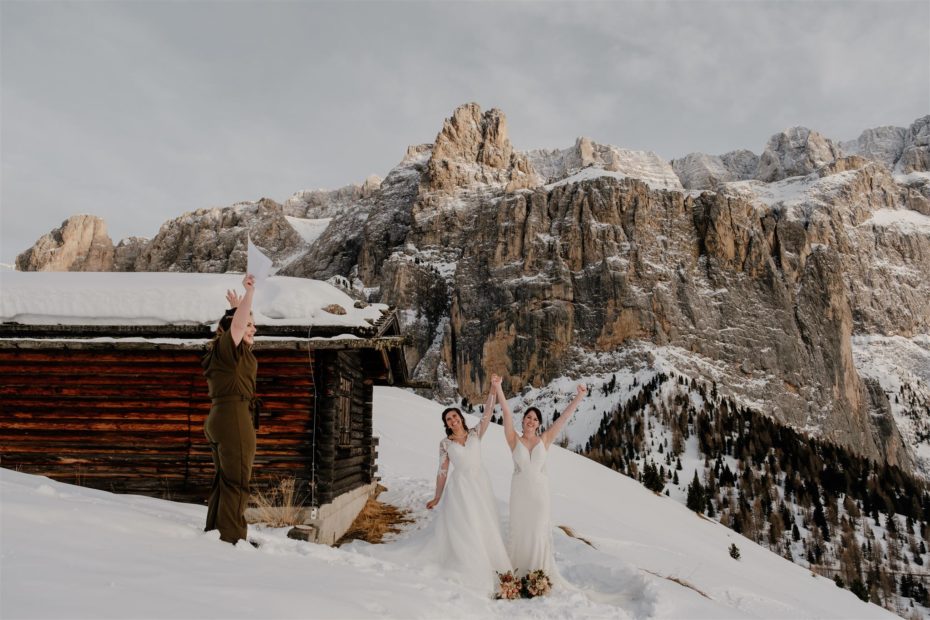
In this blog I’ll be sharing tips for how to think about sustainability in your:
- Elopement travel and location choice
- Accommodation
- Elopement activities
- Sustainable elopement food
- Elopement gifts
- Outfits and wedding wear
- Elopement Flowers
How to pick sustainable travel and locations for your elopement?
Flights have a huge carbon footprint, which can be a significant impact for couples looking to elope abroad. According to this BBC article “Around 2.4% of global CO2 emissions come from aviation. Together with other gases and the water vapour trails produced by aircraft, the industry is responsible for around 5% of global warming.”
While you might not be ready to stop flying altogether, there are some things you can look it to reduce the impact of the flights that you are taking:
- Extend your trip – Travel out for longer than just the elopement. Use it as an opportunity to really get to know the location and spend time in the place you are visiting.
- Have your elopement as part of your honeymoon – Most couples wouldn’t think twice about flying somewhere after their wedding. If you are eloping, you could have your elopement in the same country as your honeymoon. Or consider eloping in Europe. With the Schengen area, you can effortlessly have your elopement in one country and explore another one for your honeymoon without having to take another flight. Cutting down the number of flights you need to take will reduce the environmental impact.
Tip: If you are travelling to the Alps or the Dolomites for your elopement, you could spend your honeymoon exploring around more of Europe by train with a Eurail pass. - Fly short haul instead of long haul, and get a train instead of a plane – This is a tough personal choice to make. In terms of CO2 per air mile most long haul flights have a lower impact than short haul flights. This is because the majority of fuel is used in takeoff and landing. That being said if you are travelling further then your impact is much likely to be higher. You can use a tool like Carbon Calculator to compare the impact of travelling to different destinations.
- Reduce the impact of your travel within the destination – Can you avoid internal flights, get public transport rather than driving, or walk and cycle as a way to get around instead.
- Offset what you can’t reduce – There will still be some occasions when you will want to travel or where there are no alternatives to get to the destination you’d like to visit. If that’s the case, off-setting can be a great option to reduce the impact that we are having and support organisations actively working to reduce climate change.
There are other factors to take into consideration when choosing the perfect location for your elopement. It’s important to respect land that has restricted access or that you need a permit for – as often this is for environmental reasons to reduce erosion and protect wildlife. Overcrowding can have a significant impact on local communities, and it probably isn’t the feel that you are hoping to go for. I recommend finding someone with local knowledge who can help you to navigate local considerations.
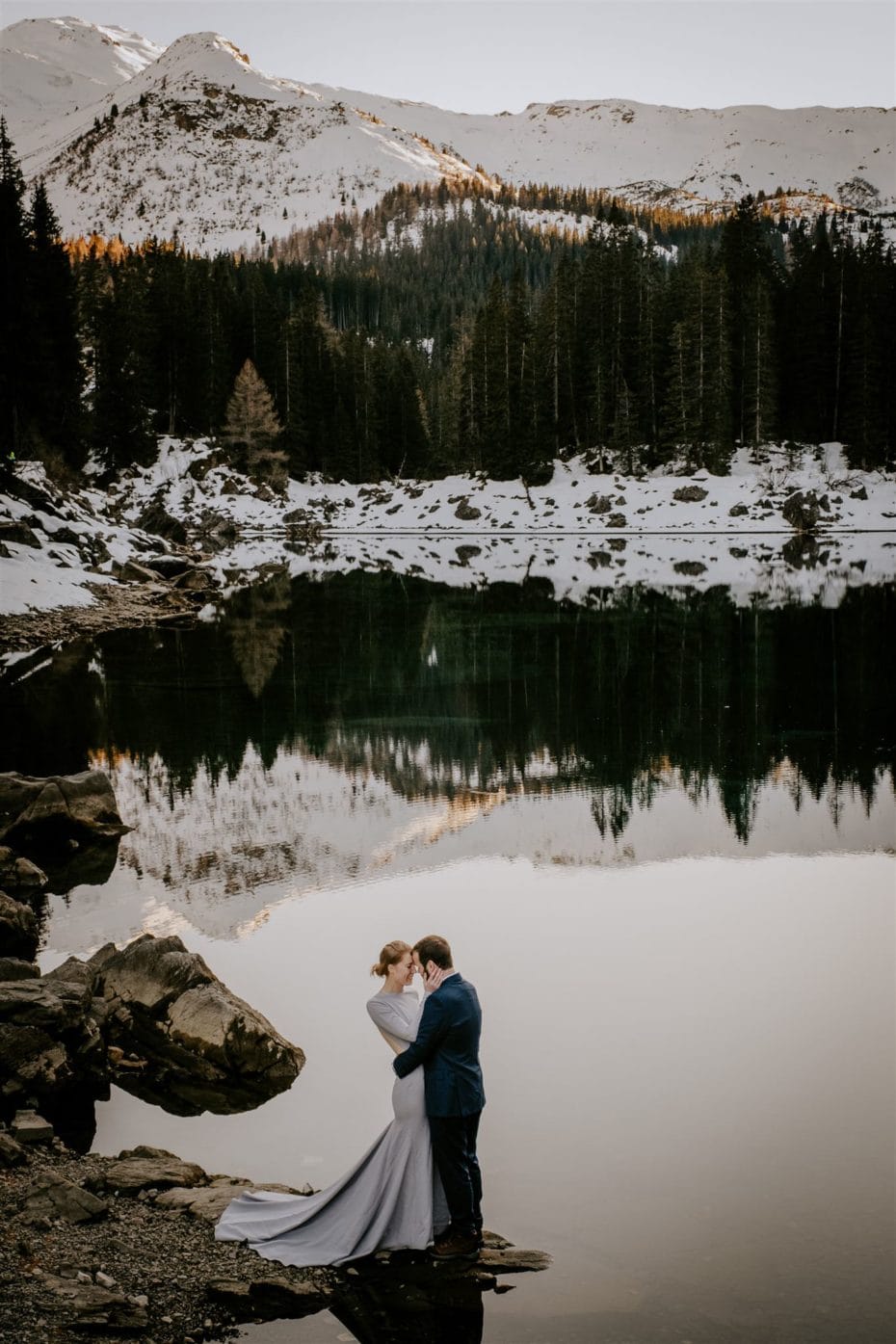
How to find sustainable elopement accommodation?
The sustainability of your accommodation depends on a range of factors.
A key way to find out if hotels or accommodation providers are actively taking steps to improve their sustainability is to look on their website for a sustainability policy, or you can ask them if they have one before you book. Depending on the resources of the providers the policy might have more or less information within it, but it will be a good indication of what stage they are at, or whether sustainability is even something they are taking into consideration.
There are also plenty or certifications that accommodation providers can apply for that show the commitments they have made to sustainability. Some key certifications to look out for are:
However, it’s important to remember that the certification process can sometimes be expensive and resource heavy for the providers. So smaller local accommodations are less likely to have been certified, despite often having a lower impact and increased benefits for the local community than larger chains.
When looking for more sustainable options taking into consideration the type of accommodation can have a big impact. Accommodation with a swimming pool or hot tub will have a much higher impact in terms of energy and water. A great option for couples looking to elope is to stay in mountain huts – these are usually low-frills accommodation with low water and energy usage. Simple steps like asking travellers to bring their own sleeping bag liners reduces the amount that linen needs to be washed, and the food provided is all usually locally produced. However, supplies often need to be transported by helicopter into mountain huts as they can be in remote locations. Which does need to be taken into consideration if you are looking at reducing or offsetting your carbon footprint.
>> Learn more about multi-day mountain hut elopement experiences in Tirol & the Dolomites <<
Many couples turn to Airbnb whilst travelling, and there are some incredible and unique places to stay all over the world hosted on the Airbnb platform. That platform has created benefits for local communities, allowing people to easily divest their income. Taking holiday homes that would have been empty for significant parts of the year and giving them an additional use. However, sometimes properties are bought specifically for airbnb. This can impact the local economy, driving rent prices and making it challenging for people to live and work within tourist destinations. Before booking with Airbnb take some time to look into the news in your chosen location and see whether there are any concerns from the community.
If you can then ensuring that the accommodation is locally owned will mean that the income is directly invested into the local community you are visiting.
How to pick sustainable elopement activities?
Think about slowing down, and making the journey part of the adventure. Human power is a great way to get around whether you are thinking about a multi-day hike or a cycling trip. I love multi-day elopements, not just because they allow you to travel slow, but also because they are an incredible way to spend time in the mountains and celebrate together.

>> Read more about multi-day elopements <<
- Avoid fuel intensive modes of transport – like hiring a huge car, or booking a helicopter ride. Instead, think about how public transport could become part of your day. It could be a tram or train across town, or find something more unusual like a horse and cart.
- Follow the 7 leave no trace principles – You might dream of throwing confetti on the mountain top, or picking plants and flowers to take home along the way. But we have to remember how many other people use these trails, and how important it is for use to protect these environments.
- Don’t touch the wildlife – Whether that’s through a guided excursion, an educational facility or whilst you are out and about in the mountains. Excursions where tourists are encouraged to pet wild animals can be extremely stressful for the animals, and many are bred for captivity rather than as part of a species survival program.
When you are planning your sustainable elopement activities you might also be looking for decorations for your ceremony. Some couples choose to take a plaque with them into the hills, and others might have an entire venue to decorate. On elopements you are much less likely to have a large space to work with, and that can reduce a huge amount of waste in signage and decorations. But if you are looking for ways to make your space special remember to avoid single use items, plastic or balloons, and instead think about what you might be able to do with natural items.
>> Read more about how to incorporate leave no trace principles into your wedding <<
Can you go skiing on a sustainable elopement?
Yes. Although just like every other activity it depends where you go, and how you get there. Your travel to the resort is still a significant contributor to the impact that your ski trip has. However, picking a resort that is implementing changes to reduce their carbon footprint can also make a difference. A few resorts to consider are:
- Zermatt – Switzerland – Numerous photovoltaic installations, eco diesel for snow machines, great recycling, renaturation & forest protection, car-free village
- Saas Fee – Switzerland – Energy town, car free, runs on hydroelectric energy, electric buses, particle filters on furnaces for ‘dust free’ environment
- Kaprun – Austria – Kitzsteinhorn lifts run on renewable energy, eco snowmaking system
In The Snow has also highlighted several resorts in the Austrian Tirol taking steps to improve their sustainability:
- Kitzbühel/Kirchberg – running one of the largest electric ski bus networks in the Alps. Lifts use 600,000 kWh less green electricity per year. In addition, some of the main heating systems have been converted from fuel oil to wood pellet biomass systems.
- Ischgl/Samnaun – Silvretta Arena – Ischgl became climate-neutral when lift operator Silvrettaseilbahn AG partnered with ClimatePartner and Vitalpin in this respect to carbon offset its energy needs and develop an ongoing plan to continue to reduce CO2 emissions in the future.
- SkiWelt Wilder Kaiser-Brixental has lots of initiatives to cut its environmental impact. One of the most headline-grabbing was a recently-installed fast new chairlift, the Sonnenlift in Brixen, which is 100% solar-powered. Environmentally friendly snow-making is also a priority for the region. In summer, the snow reservoirs are filled mainly with precipitation and snowmelt.
You can find out more about more sustainable ski resorts at Sno and National Geographic
If you’d like to read more about how to plan a ski wedding, check out this ski wedding planning guide.

Does food have an impact on sustainability?
People often think that travel has the biggest impact – but research shows that food could have an equal, if not a higher impact than our travel. When planning an elopement it’s an area where you could significantly reduce your environmental impact, without drastically changing your elopement plans. Here are a few key tips:
- Avoid all inclusive or buffet foods – this has a considerable impact due to the food that is usually on offer and the amount of food waste
- Shop locally and ask suppliers if they also shop locally – this doesn’t just mean in local super markets but choosing foods that are grown within the region, shopping directly from suppliers, or at local markets.
- Reduce meat and opt for plant based alternatives – even opting to go plant based for one meal can drastically reduce your impact and water usage.
- Avoid food that isn’t grown locally – whether that’s bananas or avocado’s, lobster or salmon. If you are in the mountains you’ll be a long way from where those foods have been grown, caught and produced.
- Look for seasonal alternatives – This isn’t always possible. You’ll be hard pressed to find enough options that are locally grown and seasonal in the mountains in the middle of winter, but every time you can opt for local produce you will be making a difference.
How to choose sustainable elopement gifts?
Whether you are buying each other gifts to open in the morning, or you feel that friends and family will still want to ask you for a gift list. There are a few tips to make sure that the items you’re asking for can have a positive impact.
A few tips to help you make sure your elopement gifts are as sustainable as possible are:
- Set up a list or registry – Avoid duplicate items, and you’ll know that the gifts you do receive are things that you really want or need.
- Ask for gifts that could help you live more sustainably – Whether thats a small item like reusable makeup wipes , or something larger like a Soda Stream to reduce the number of plastic bottles you use. Maybe even one of these new plant based milk makers. If there is an item out there that could help to reduce your impact but isn’t something you would usually buy then this is the perfect time to ask for it.
- Shop from small independent businesses – Etsy is a great place to find gifts, with a range of independent creators and options for personalised items that can make the perfect addition to your special day. You can find some of my favourite sellers here.
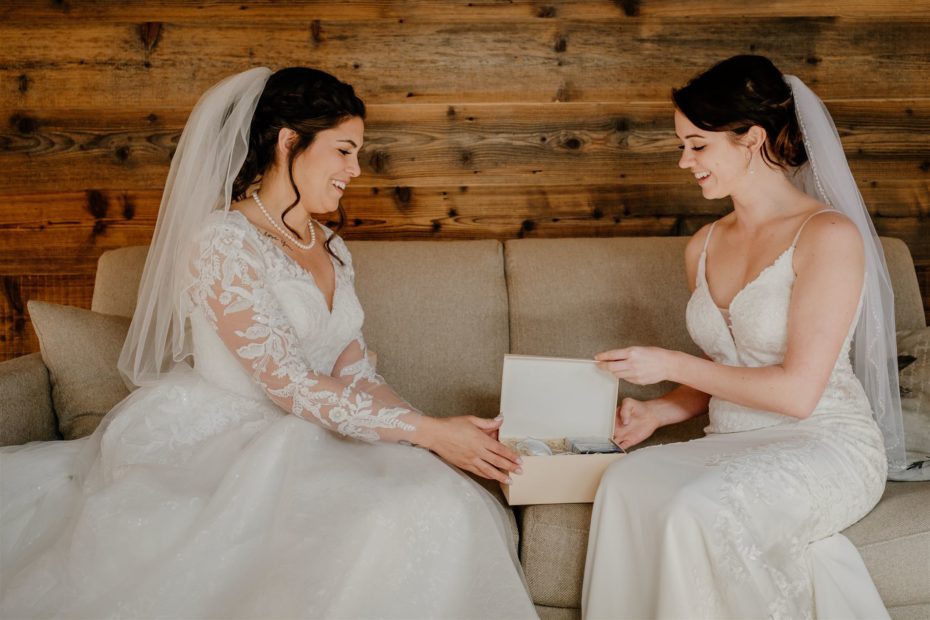
Where to buy sustainable wedding wear?
We’ve all realised that single use items like straws and cups are bad for the environment, and unfortunately single use dresses are the same. Especially when many dresses are made out of plastic based fabrics or have an intensive supply chain.
Shopping second hand or hiring your wedding dress helps to make sure that you are not contributing to another item being made and can enable your dress or suit to be worn again after your elopement. If that isn’t an option for you and having an outfit thats new is non-negotiable. There are so many designers out there with sustainable ranges making it easy to pick an outfit that looks great, but doesn’t have a negative impact on the planet.
I’ve written a full blog post sharing all my advice on how to pick sustainable wedding wear here. Including which fabrics to look out for, and some of my favourite designers.
Are elopement flowers sustainable?
Because they are natural it’s easy to forget the impact that flowers can have, but there are a range of ways that flowers can be damaging to people and planet.
Cut flowers can have a significant impact through their supply chain. Often grown in East Africa they are water intensive to grow. Once cut the flowers have to be immediately transported in chilled containers to preserve their quality. The longer the journey takes the less the flowers are worth, meaning that the industry usually relies on aviation. Flowers grown in cooler climates are usually produced in greenhouses which require a huge amount of energy, and the plants often need more chemicals to flourish.
People are also impacted through the flower industry. With farm workers working long inflexible hours, and being exposed to the chemicals that are used in flower production. The local communities are impacted by the intense water usage, and there is some research into areas where the local water may be becoming contaminated with harmful chemicals.
If you want to have flowers as part of your sustainable elopement some important questions to ask are:
- Where were these flowers produced?
- Were they produced ethically and sustainably?
- Who benefits from this purchase?
- How can waste be reduced?
Many florists are making it easy to pick a more sustainable option. With clearer indication of which flowers make a more sustainable choice. You might also want to think about alternatives like dried flowers, which can be just as beautiful but last longer and in some cases have much less energy intensive supply chains. Or think about carrying something completely different, rather than a traditional bouquet Molly, pictured below carried a wooden heart woven out of branches instead. You can find more ideas on my blog here.

A few final tips on sustainable elopements
The fact that you are taking an interest in how to reduce your impact and researching what will help to make your elopement more sustainable means you are already on the right track. Remember that every step you make counts. There’s a quote I love that says “We don’t need one person doing sustainability perfectly, we need everybody doing it a bit.”
There are so many ways of trying to reduce your impact, and there can be lots of conflicting information out there. My biggest recommendation is to take each step and each part of your elopement as it comes, rather than trying to get it all perfect at once.
If you can reduce as much of your impact as possible, whilst still planning the wedding of your dreams, and then off-set whatever impact you can’t reduce you are already on the right track.
This blog post is written with as much knowledge and research as I have access to at the moment, but new sustainability information is being created all the time. If you’ve got any suggestions for how to make elopements more sustainable, or any hints and tips I haven’t included I’d love to hear from you.
Related Posts
Save This Post

